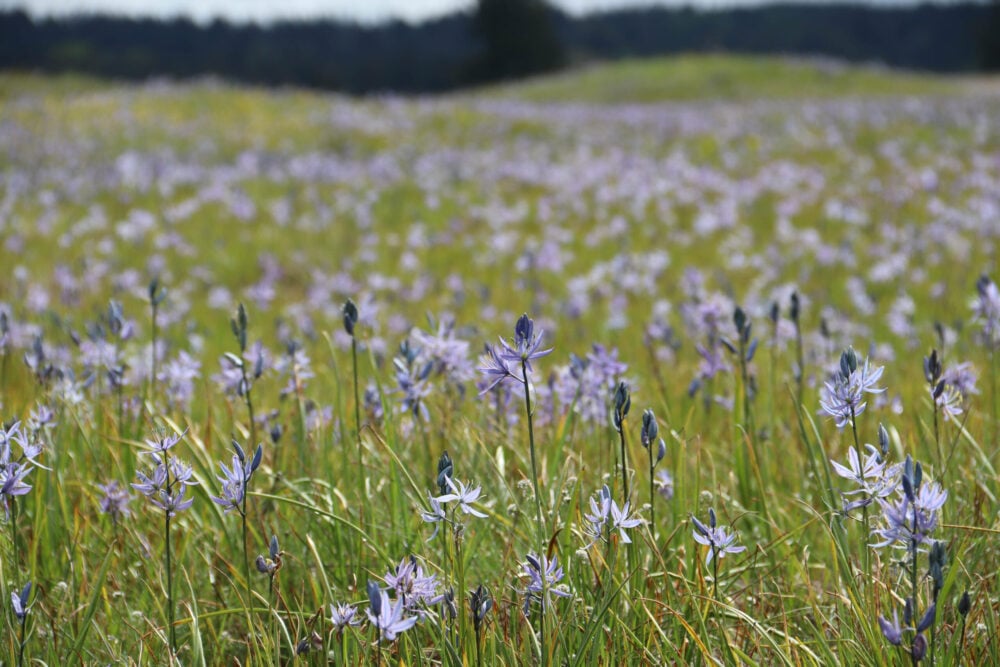
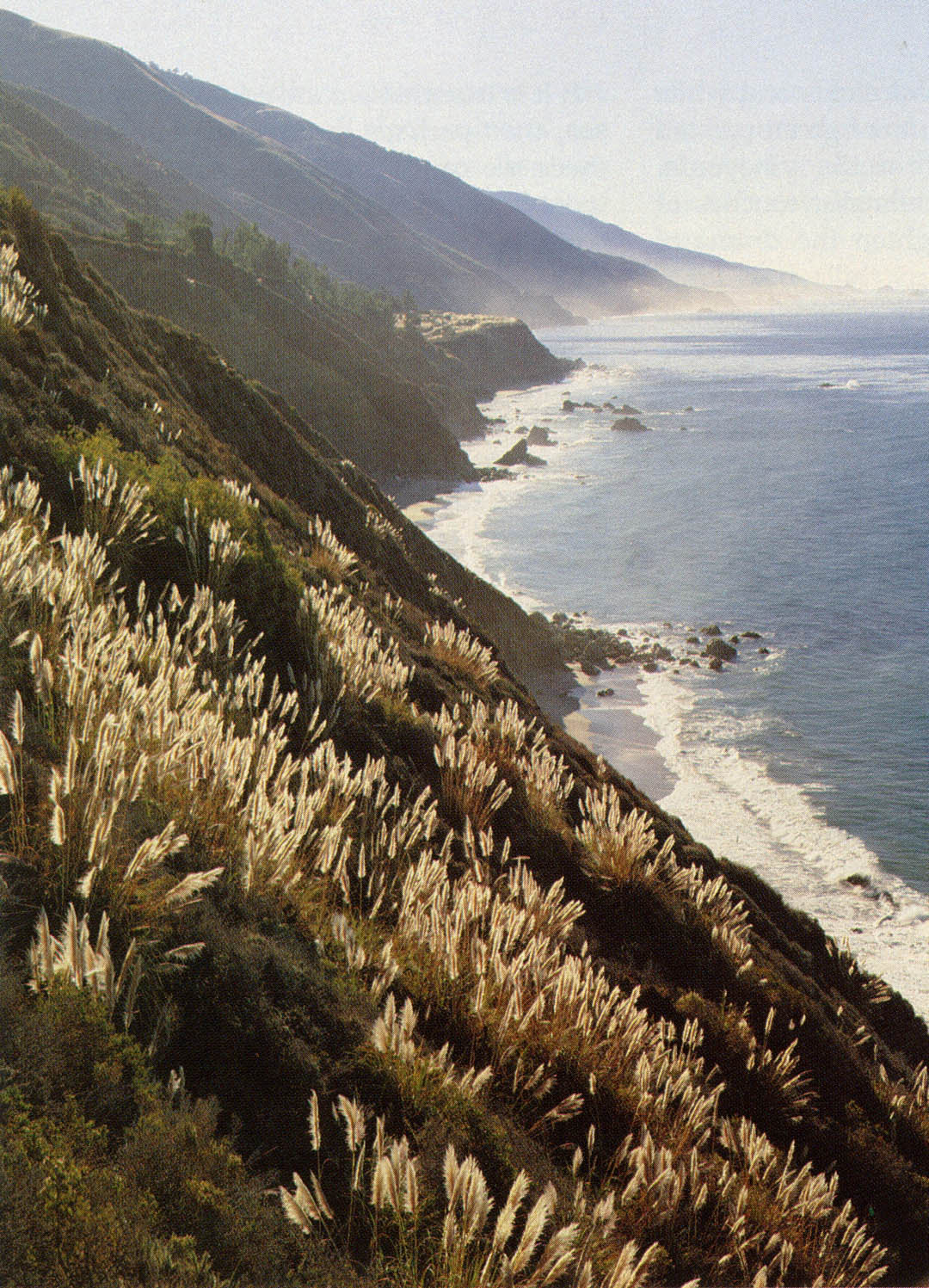
Contributor
- Topics: Archive, Growing for Biodiversity
With tamarix and Scotch broom, jubata grass (Cortaderia jubata) is proving an unwelcome, ill-behaved guest, shouldering out native plants as it colonizes large areas where nothing checks its spread.
Pampas grass (Cortaderia selloana), a plume grass from the pampas of Argentina, Brazil, and Chile, has been a popular specimen plant in temperate gardens of the western United States since the middle of the nineteenth century. Several decades ago, a surrogate species, Cortaderia jubata, was introduced to the trade and has since become a primary weed in coastal areas of the West. To distinguish between the two, this plant is called jubata grass or Andean pampas grass.
Many nursery people are unaware of the difference between the two plants, and some even favor the weedy species for its rapid growth from seed and its ability to be brought into flower in one-gallon cans over a single season. The gallon-sized plant appears smaller and more suited to small landscapes, but soon becomes much larger. When grown commercially for plumes, pampas grass is planted on ten-foot centers in rows sixteen feet apart.
In north coastal areas where forestry is dominant jubata grass at first was welcomed. Its harsh, cutting leaves (cortaderia, from an Argentinian word, has the same root as the Spanish cortar, to cut) kept deer out of reforested areas and protected tree seedlings from being browsed. Later, however, the grass itself crowded out the young seedlings. In the 1960s Georgia Pacific had to abandon 1,100 acres in California’s Humboldt County to jubata grass as there was no economical way to control it. At that time 7,000 additional acres were severely infested.
The enormous increase in jubata grass over the past decade also has crowded out native vegetation, transforming beautiful coastal areas into monotonous prairies of dun-colored plumes that look like old dishrags on sticks.
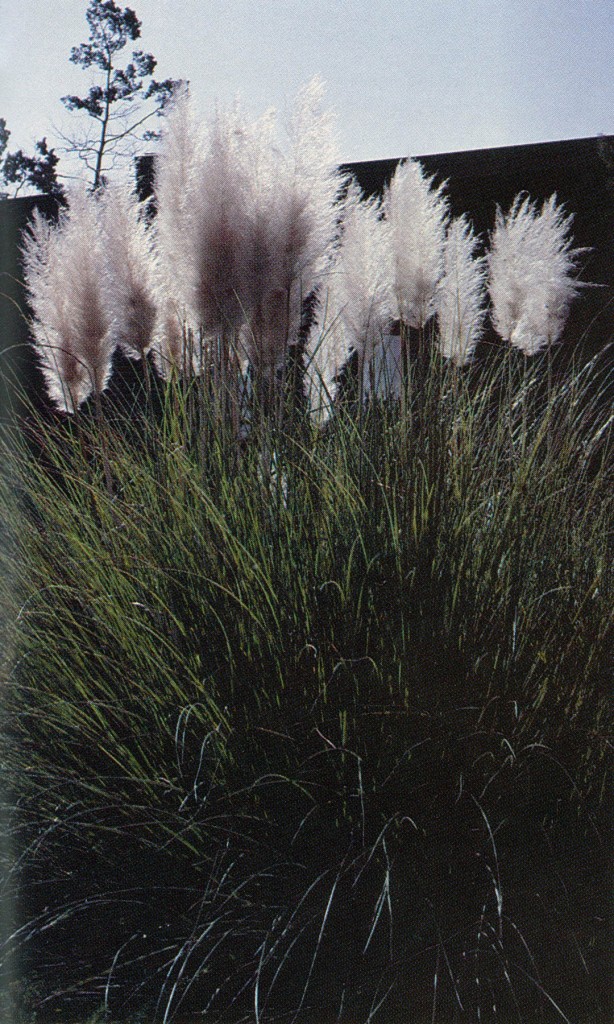
Pampas Grass
Cortaderia selloana was introduced into horticulture by James Tweedie, a Scot who lived from 1775 to 1862. Trained in horticulture, Tweedie achieved the position of head gardener at the Royal Botanic Garden, Edinburgh, but at age 53 quit to emigrate to Argentina. There he collected plants widely, sending collections to the botanic gardens at Dublin, Glasgow, and Liverpool and seeds to his friends.
In 1897 Otto Stapf at Kew Gardens named the plant C. argentea. The present name was given in 1900 by Paul Ascherson and Karl Graebner at the herbarium in Berlin.
In Argentina, Brazil, and Chile Cortaderia selloana grows on river plains where part of the year the crown is under water while the rest of the year the plant is stressed by drought. Pampas grass was introduced into California about 1848, according to Joseph Sexton, pioneering nurseryman of Santa Barbara. It is easily grown from seed, but is highly variable. Color ranges from silvery white to pink or lavender, with heights usually from ten to fifteen feet.
Sexton continually selected the plants he worked with, and in time he realized that the loveliest plumes were produced by female plants, which have stiff hairs on the ovaries. These hairs spread the spikelets of the inflorescence to create a soft fluffiness not seen in male plumes. Sexton also found that if the plume was pulled from the female plant just before it opened and placed in the sun, it would expand and remain puffed out. This discovery led to the commercial production of pampas grass plumes from about 1874 to the end of the century. The plumes were in great demand throughout Europe, and in this country in the 1880s there was hardly a parade without pampas grass plumes to decorate the floats.
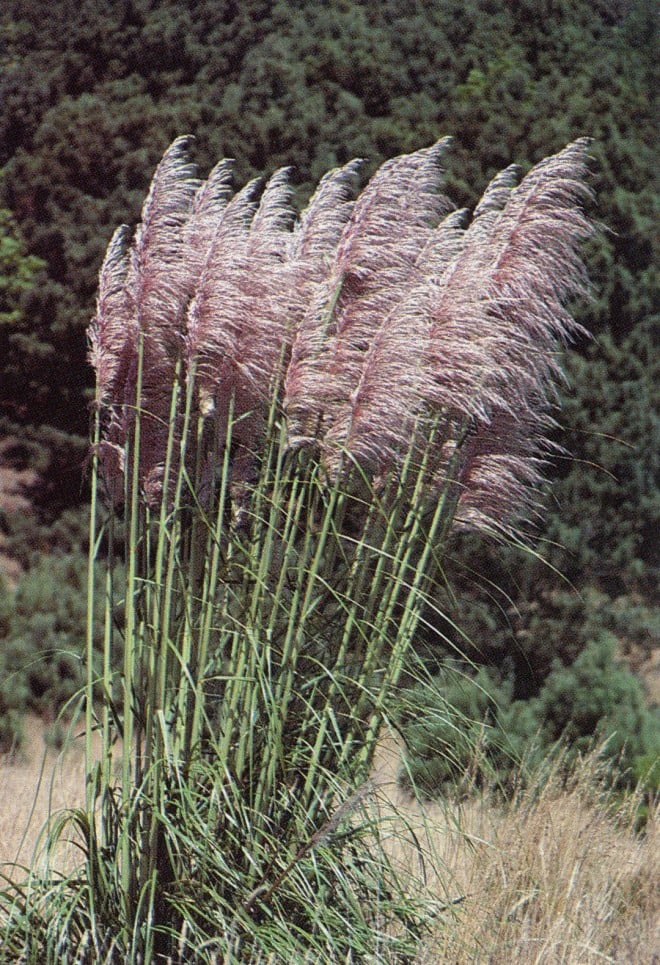
Jubata Grass
Information about Cortaderia jubata is less clear. Native not to the pampas but to the mountains of Ecuador, Peru, and Chile, it would better be called Andean plume grass. Jubata grass is a colonizing plant, invading talus and slides and other bare areas in the mountains. It is at home in coastal areas of the western United States, colonizing road cuts, forest clear-cuts, and eroded or exposed soils. It appears to have entered the horticultural trade through France, having been introduced by the Lemoine Nursery in Nancy. I have no information on the date of introduction.
Lemoine named the plant Gynerium jubatum in 1878. Otto Stapf is the authority for the present name. In California C. jubata has incorrectly been called C. atacamensis and C. quila.
By whatever channels this plant came to our shores, it found a compatible home. Increasing rapidly, it is now widespread to the point of vegetative pollution. Yet Sunset’s Western Garden Book has acknowledged jubata grass only in editions after 1976. Beecher Crampton, in his 1977 Grasses of California, seemed unaware, as were others, of the difference between the species, and says of Cortaderia selloana only that some plants of it “produce a little seed and become naturalized, especially along the coast.”
Pampas grass and jubata grass can be differentiated by general habit, leaf shape and color, and flowering time. Here on the California coast jubata grass blooms first, beginning in late July and continuing into September, while pampas grass blooms from late August but mostly in September. Immature flowering plumes are generally deep rosy lavender in jubata grass and silvery white or pale violet in pampas grass. Leaves of pampas grass are somewhat more slender and rise in an arc to the height of the inflorescence, while jubata grass has leaves that are slightly wider, and usually one to three feet below the inflorescence. Female inflorescences of pampas grass may have a few male flowers at the base; jubata grass has only female flowers. Other minor differences could be noted, but because of variability among plants, these are not always helpful.
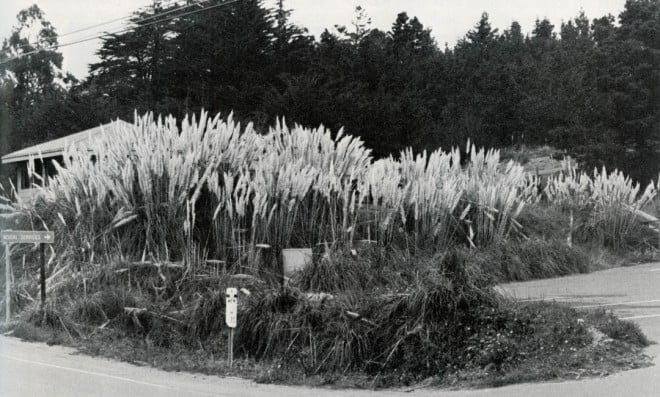
One Effort at Control
Meeting minutes of the Dorothy King Young Chapter of the California Native Plant Society (CNPS), which covers coastal Sonoma and Mendocino counties north from Jenner, record that jubata grass was a concern from the chapter’s beginnings in 1966. There were frequent discussions of possible methods of control, and always the magnitude of the task was recognized. Then in winter 1986–87 a program was initiated involving the Gualala, Anchor Bay, and Point Arena areas along the coast, headed by the local CNPS chapter, with the Lions’ Club providing volunteer workers and the community raising $3,500 in funding. The control program focused on the area along Highway 1 from the Gualala River to Manchester and from the ocean about six miles to the ridge of the first range of hills. Sea Ranch, a private development south of the Gualala River, had already begun a continuing program through its homeowners’ association.
The goal was to destroy jubata grass by spot spraying with herbicide. All property owners were contacted for permission, and permits were secured from the Agricultural Commissioner, the state Department of Fish and Game, the counties, and the California Coastal Commission.
During the first season over ninety percent of the plants were controlled on principal viewsheds. In the second season the same area was sprayed again to catch missed plants and those that had resprouted. About two-thirds of the time was spent spraying plants in the canyons, where logging and erosion had exposed bare soil that was quickly colonized by the grass. Volunteers from the local CNPS chapter also pulled up seedlings.
By the third year the community had cheered the disappearance of jubata grass and interest had turned to other issues. By this past winter community participation had dropped to a point where efforts consisted only of keeping the viewshed free of invading plants. Unfortunately, control of mother plants in the canyons has been incomplete because plants on steep banks must be sprayed by climbing and roping down, a difficult proposition judged uneconomical for the results achieved. Also, control efforts must be ongoing, since the mature plant is a collection of shoots and any single shoot not sprayed will survive and regenerate. If control is incomplete, reinfestation may be expected in four or five years. It is already happening in our area. On morning walks over a recent six-month period one local couple has pulled over 7,000 seedlings of jubata grass from two to ten inches tall.
The Problem Persists
Doris Anne Hoover, chair of the Escaped Exotics Committee of the Santa Monica Mountains Chapter of CNPS writes that in Los Angeles County jubata grass is “still the selected choice of landfill operators and highway crews for ‘landscaping’ huge banks of earth surrounded by native Santa Monica Mountains vegetation. The seedlings are beginning to spread, as we expected, up and down canyons on the on-shore, off-shore winds, and no doubt a few wet years will create the same problem here.”
While the problem has been with us for thirty years, we have only recently become aware of its full magnitude. In her unpublished thesis, “Ecology and Reproductive Biology of the Genus Cortaderia in California,” Martha Costas Lippmann describes the reasons for the rapid spread of jubata grass. C. selloana is a dioecious plant, with male and female flowers on separate plants. The hairs on the ovary fluff up the plumes, making the female plants the desirable horticultural specimens. If only females are planted, there will be no pollen and no seed and the plumes will remain fluffed up for some time.
Plants of Cortaderia jubata, on the other hand, are all female. Each flower produces seed by apomixis, a form of vegetative reproduction in which seeds are produced without fertilization and all plants are genetically identical to the mother plant. Seeds mature fast and are quickly shed, with many thousands per plume from each plant. Seedlings don’t compete well, but they quickly establish on bare soil. Once they have put down roots, they can survive on hot, dry slopes that have almost no soil.
There is at least one small logging company that makes an effort to control jubata grass in its forest cuts, but most ignore the problem. Heavy clear-cutting over the past few years has assured that the beautiful coastline will continue to be increasingly infested by this pest.
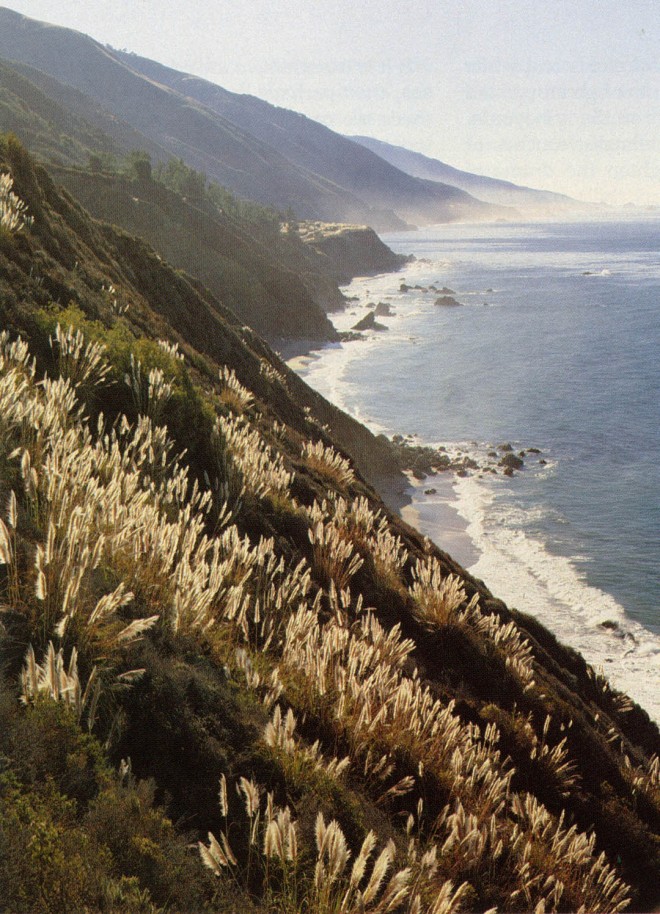
Up and down the coast along Highway 1 are many areas where infestations are beyond easy control. There are large stretches, though, where only single plants occur. If these are quickly removed, control may be obtained; if allowed to flower for a year or two, there will soon be a colony. Simply cutting the plumes will not control the plant’s spread unless they are bagged early and repeatedly, since shoots are produced over a period of about three months. After cutting, the plumes still produce mature seed, and if they are not bagged the small, delicate seeds will be released and spread widely on the wind.
One solution has been implemented at the coastal community of Sea Ranch, where residents are required to landscape their homes using only native plants from an approved list. Any jubata grass found there is extirpated within twenty-four hours by staff of the homeowners’ association. This suggests the possibility of zoning ordinances in rural areas that allow only a small area for landscaping close to residences, with the balance of the lot to remain wild.
It also would be helpful if legislation were passed prohibiting importation of any plants of Cortaderia into the state, and requiring that all plants of the genus sold by nurseries be vegetatively propagated from certified female plants of Cortaderia selloana. In 1988 the California Legislature passed a bill prohibiting the sale of several invasive weedy exotics, including jubata grass, but the bill was vetoed by the governor. Meanwhile, anyone buying a plant of pampas grass should ascertain beyond all doubt that it is a female plant of C. selloana.
Share:
Social Media
Garden Futurist Podcast
Most Popular
Videos
Topics
Related Posts
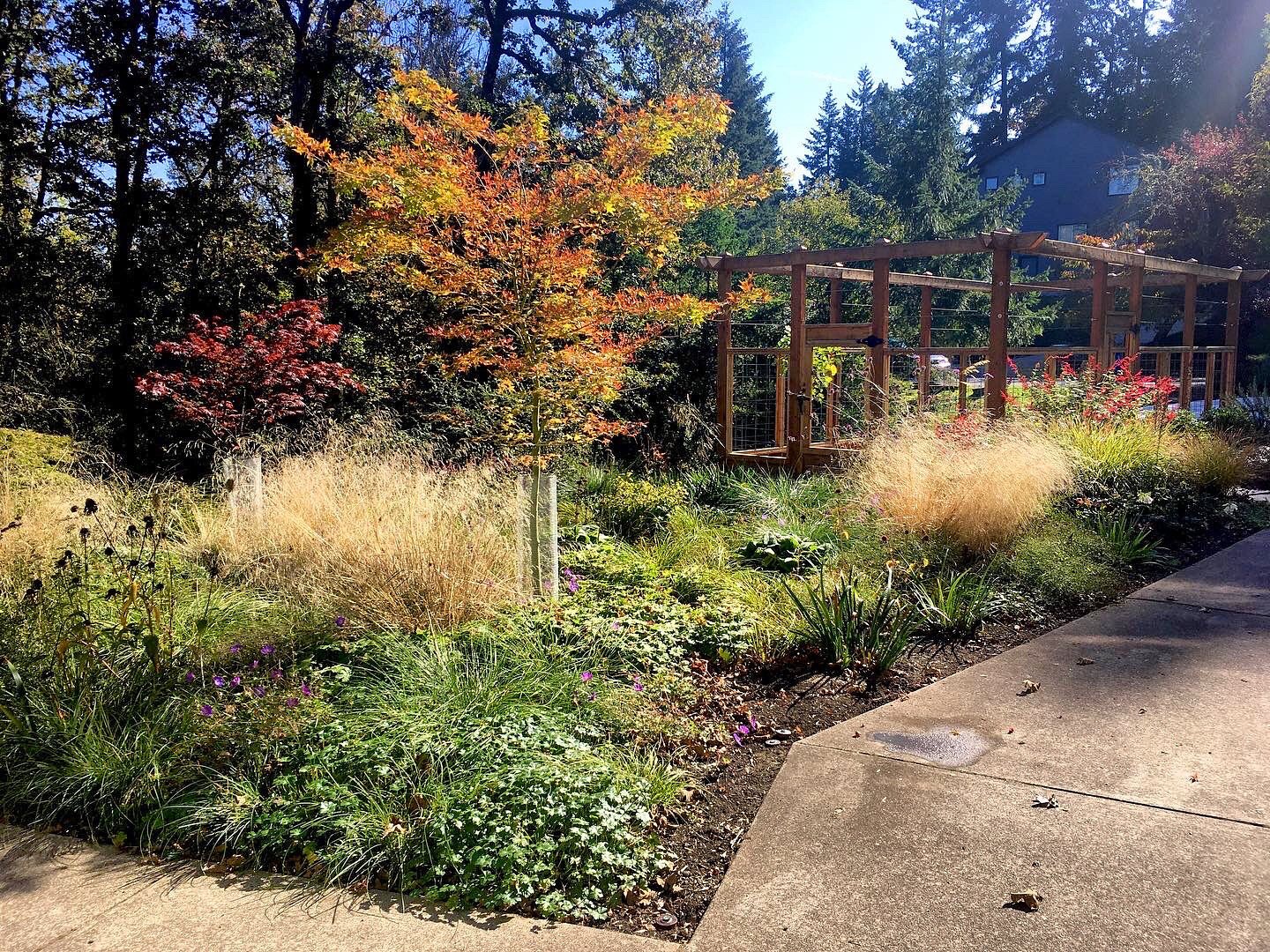
Low Maintenance Gardens – Better for Pollinators and People
Autumn 2022 “I come out every day. It’s therapy, my meditation.” Janet’s young garden transformed from overgrown, invasive plants to mostly natives. The dailiness of
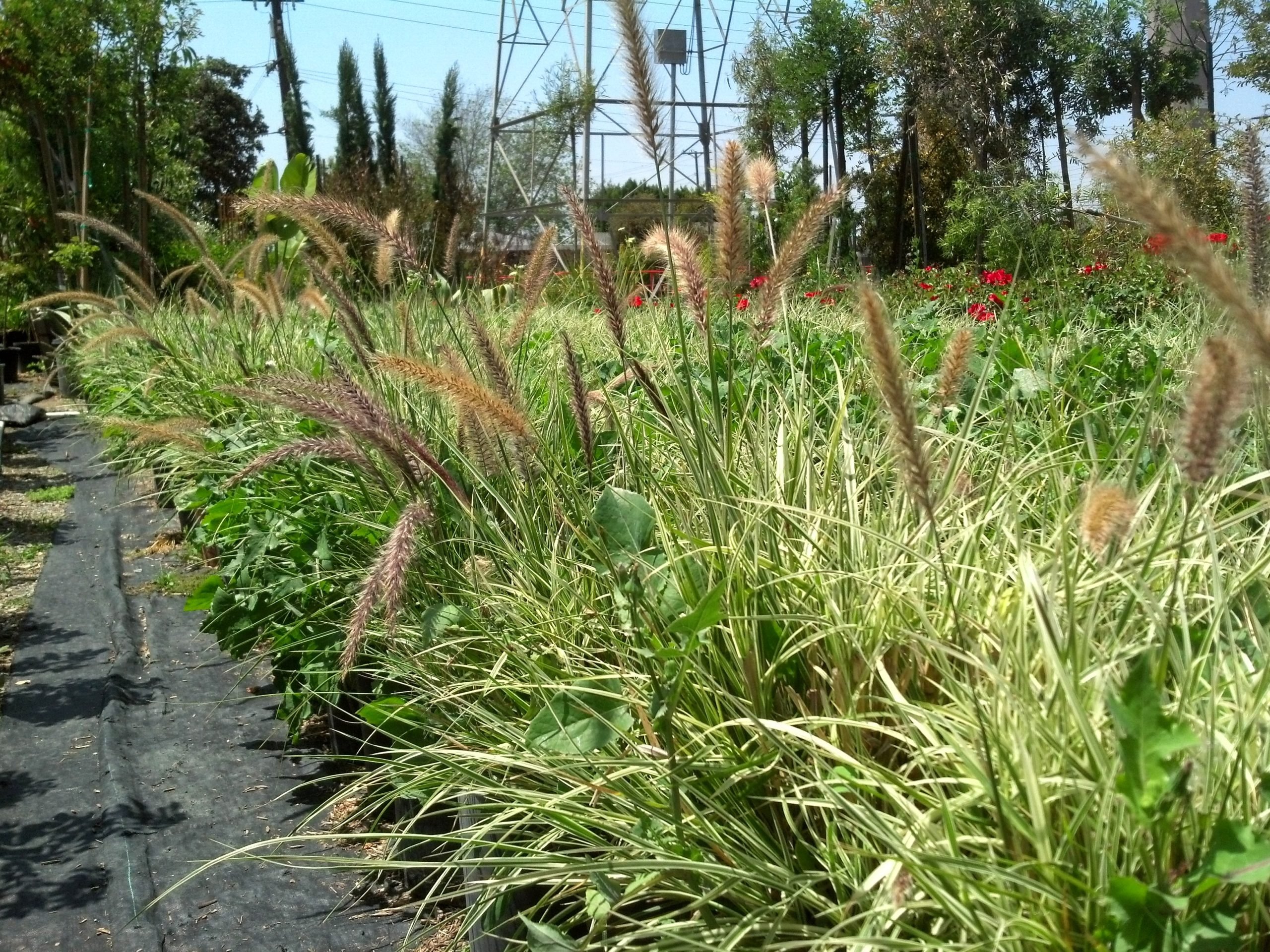
Invasive Plants Are Still Being Sold: Preventing Noxious Weeds in Your Landscape
Autumn 2022 With so many beautiful ornamental plant species and cultivars throughout California and the Pacific Northwest, how do you decide which ones to include

Garden Design in Steppe with Transforming Landscapes with Garden Futurist Emmanuel Didier
Summer 2022 Listen to full Garden Futurist: Episode XVII podcast here. Emmanuel Didier, Principal and Creative Director at Didier Design Studio is a leading figure
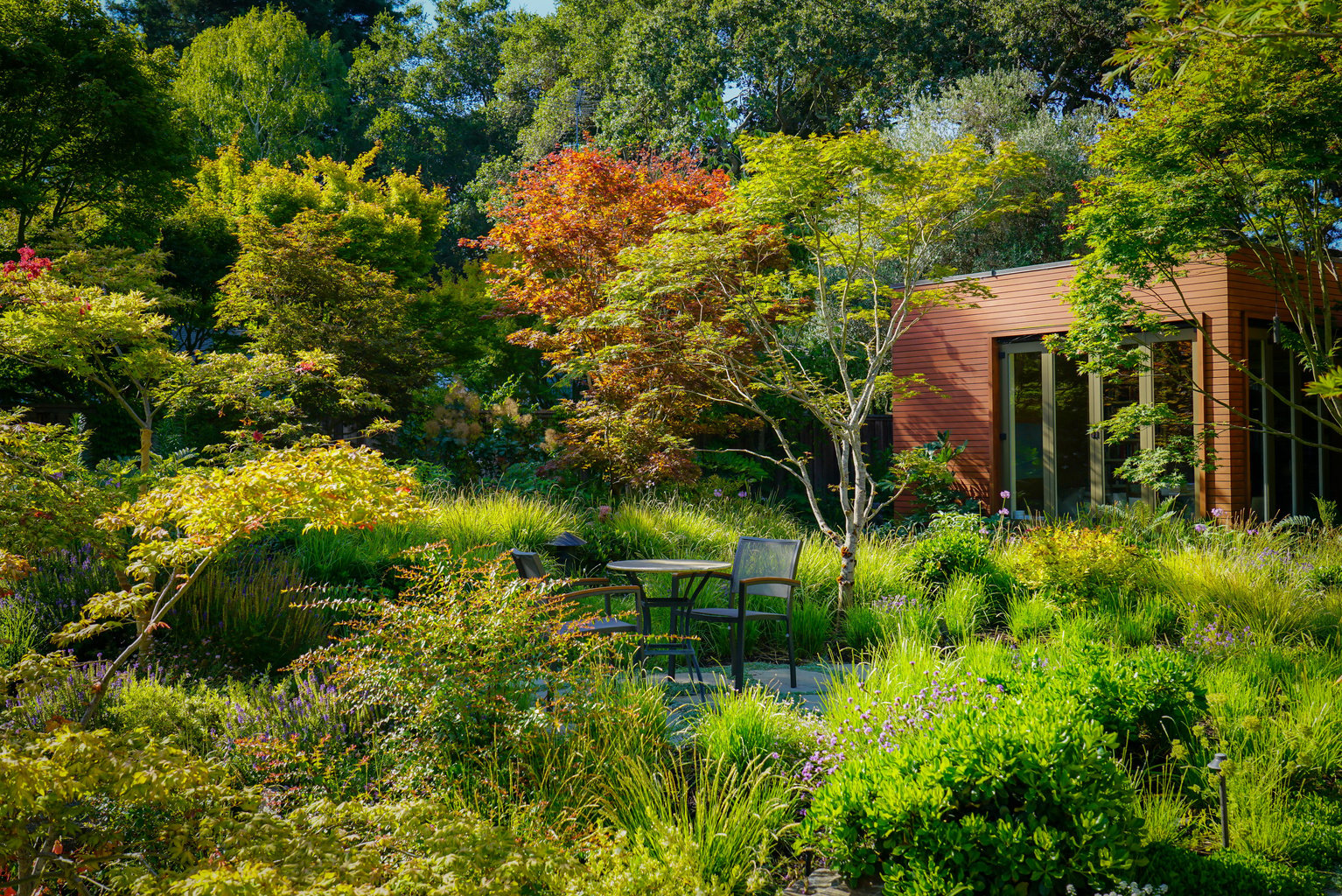
Seslerias: Versatile Groundcover Meadow Grasses
Summer 2022 Without question, the most beautiful and versatile of all the groundcover meadow grasses are the moor grasses (Sesleria). Moor grasses tick off all




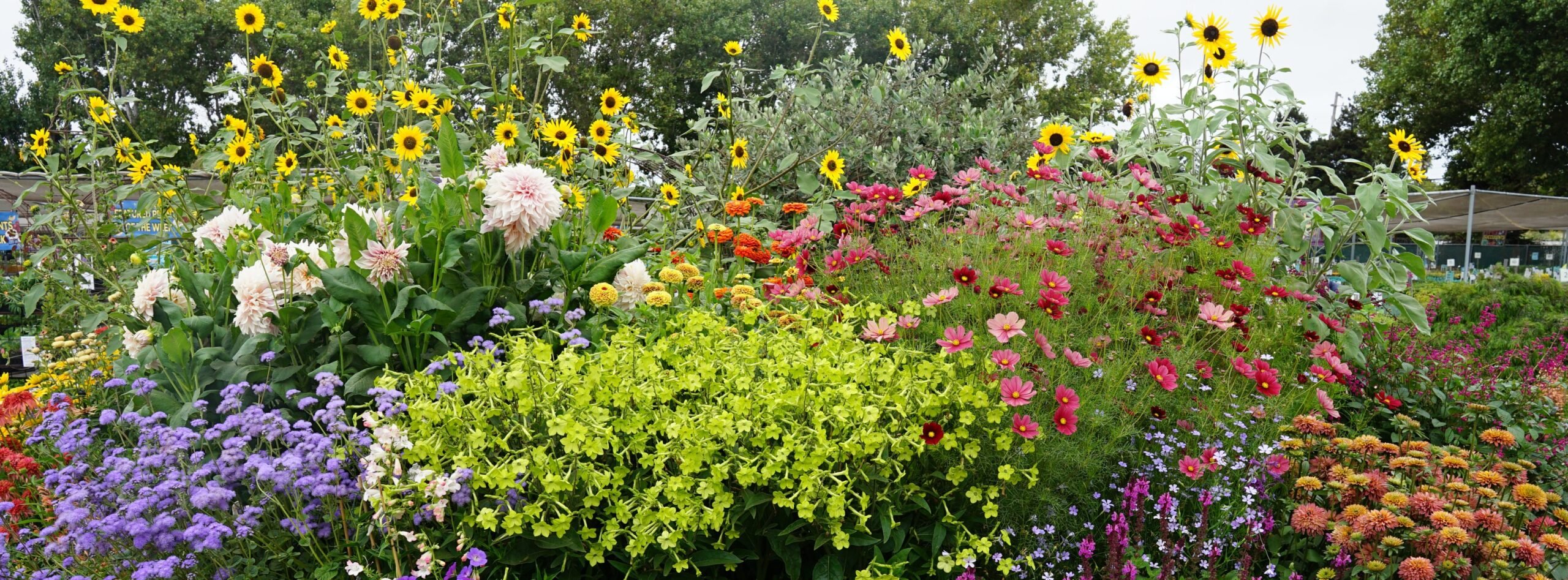




Responses